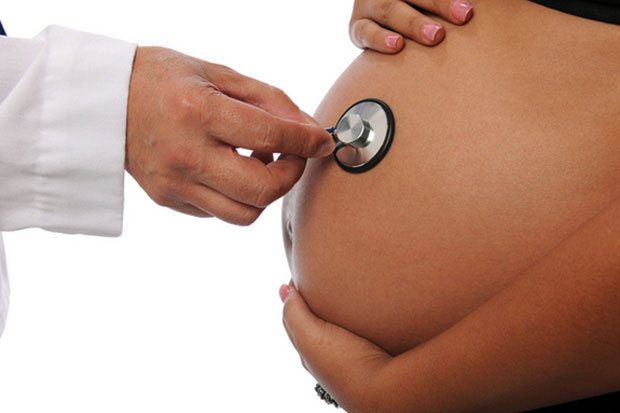Sleep Apnea in Pregnancy May Harm Mom and Baby

Get the world’s most fascinating discoveries delivered straight to your inbox.
You are now subscribed
Your newsletter sign-up was successful
Want to add more newsletters?

Delivered Daily
Daily Newsletter
Sign up for the latest discoveries, groundbreaking research and fascinating breakthroughs that impact you and the wider world direct to your inbox.

Once a week
Life's Little Mysteries
Feed your curiosity with an exclusive mystery every week, solved with science and delivered direct to your inbox before it's seen anywhere else.

Once a week
How It Works
Sign up to our free science & technology newsletter for your weekly fix of fascinating articles, quick quizzes, amazing images, and more

Delivered daily
Space.com Newsletter
Breaking space news, the latest updates on rocket launches, skywatching events and more!

Once a month
Watch This Space
Sign up to our monthly entertainment newsletter to keep up with all our coverage of the latest sci-fi and space movies, tv shows, games and books.

Once a week
Night Sky This Week
Discover this week's must-see night sky events, moon phases, and stunning astrophotos. Sign up for our skywatching newsletter and explore the universe with us!
Join the club
Get full access to premium articles, exclusive features and a growing list of member rewards.
Women who experience sleep apnea during pregnancy may face an increased of risk of health problems, for both themselves and their newborns, a new study suggests.
In the study, babies born to women with obstructive sleep apnea were more likely to be admitted to the neonatal intensive care unit than babies born to women without the condition. All of the women in the study were obese.
In addition, the women with sleep apnea were more likely to develop preeclampsia, a condition of high blood pressure during pregnancy, and to deliver their babies by cesarean section.
Pregnancy complications linked to obesity — such as high blood pressure and gestational diabetes — are better understood than sleep apnea, which is an understudied and under-diagnosed condition in pregnant women, the researchers said.
There is a need for better ways to screen and treat sleep apnea in pregnancy, said study researcher Dr. Judette Louis, an assistant professor of obstetrics and gynecology at the University of South Florida.
People with sleep apnea experience pauses in their breathing during sleep. With obstructive sleep apnea, the pauses are due to a blocked airway. Obesity increases the risk for obstructive sleep apnea because the extra fat tissue can narrow in the inside of the windpipe, according to the National Heart and Blood Institute.
In the new study, the reseachers analyzed information from 175 obese pregnant women who were tested for obstructive sleep apnea at home using a portable device.
Get the world’s most fascinating discoveries delivered straight to your inbox.
About 15 percent of participants had obstructive sleep apnea. Those with sleep apnea were more likely to be heavier, and have chronic high blood pressure than those without sleep apnea.
Among those with sleep apnea, about 65 percent required a C-section, while 33 percent of those without the condition required the surgery. Additionally, 42 percent of those with sleep apnea had preeclampsia, compared with 17 percent of those without sleep apnea. The rate of premature births was similar between the groups.
The percentage of newborns requiring admission to the NICU was 46 percent for mothers with sleep apnea, compared with 18 percent for those without sleep apnea. Many of these admissions were due to breathing problems.
The higher rate of NICU admissions for infants born to mothers with sleep apnea may be due to the higher rate of C-sections in this group, the researchers said.
The best way to reduce the risks that come with obesity-related sleep apnea would be to treat obesity before a woman becomes pregnant, although losing weight is often difficult, the researchers said.
Because the study only included obese women, it's not clear whether sleep apnea could have the same effects in women who are not obese.
The study is published online today (Sept. 20) in the journal Obstetrics & Gynecology.
Pass it on: Babies born to obese mothers with sleep apnea are at increased risk for admission to the NICU.
Follow MyHealthNewsDaily @MyHealth_MHND on Twitter. We're also on Facebook & Google+.
 Live Science Plus
Live Science Plus











